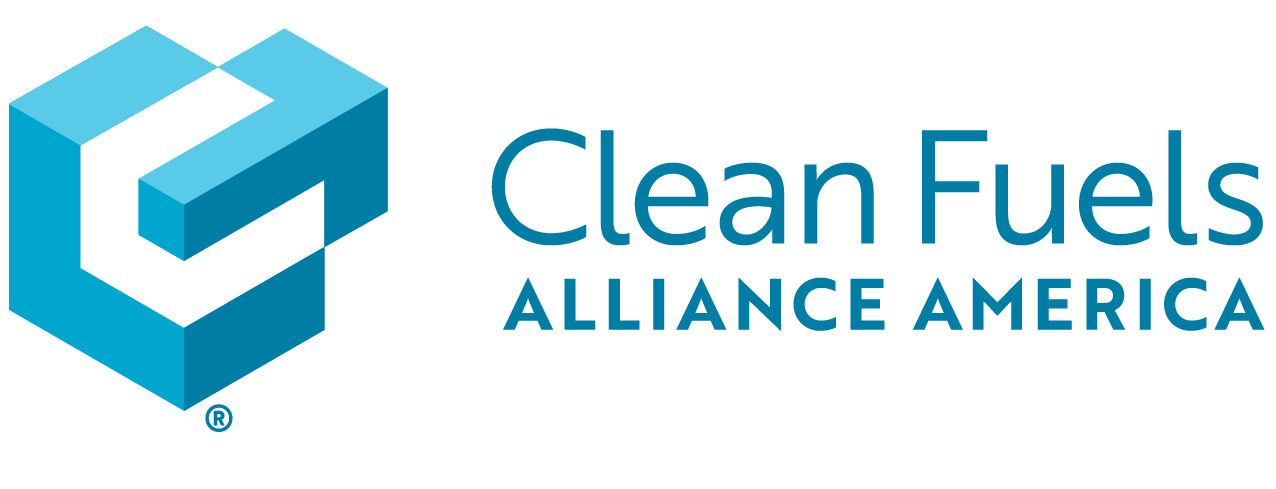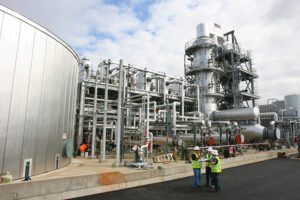Study Documents Significant Decrease in Soy’s Life Cycle Carbon Footprint from 2015-2021
JEFFERSON CITY, MO – A recent Life Cycle Assessment conducted by Sustainable Solutions Corporation (SSC) for the United Soybean Board (USB) and the National Oilseed Processors Association (NOPA) reveals a significant reduction in the carbon footprint of U.S. Soy throughout its cultivation, harvesting, transportation and processing stages. The assessment highlights a notable 22% decrease in the carbon footprint associated with U.S. production of crude soy oil, which is a key feedstock for U.S. biodiesel, renewable diesel and SAF producers.
Soybean production and oil processing constitute more than 40% of the carbon intensity (CI) score for soy biodiesel. The improvements documented in this report are expected to translate into reductions in CI across the clean fuels industry.
Clean Fuels Alliance America assisted USB and NOPA in ensuring the data collected for processors in the report aligns with data specifications for GREET, so it could be easily integrated into GREET model updates.
“We look forward to working with Argonne National Laboratory through the data quality assessment process to update the GREET model to reflect the latest improvements in the industry,” said Veronica Bradley, Environmental Scientist at Clean Fuels Alliance America.
The Life Cycle Assessment of U.S. Soybeans, Soybean Meal, and Soy Oil report can be found here.
Materials supported by the United Soybean Board, soybean farmers and their checkoffs.
About United Soybean Board (USB): United Soybean Board’s 77 volunteer farmer-leaders work on behalf of all U.S. soybean farmers to achieve maximum value for their soy checkoff investments. These volunteers create value by investing in research, education and promotion with the vision to deliver sustainable soy solutions to every life, every day across the three priority areas of Infrastructure & Connectivity, Health & Nutrition, and Innovation & Technology. As stipulated in the federal Soybean Promotion, Research and Consumer Information Act, the USDA Agricultural Marketing Service has oversight responsibilities for USB and the soy checkoff. For more information on USB, visit unitedsoybean.org.
About National Oilseed Processors Association (NOPA): Founded in 1930, NOPA is the national trade organization located in Washington, DC representing the U.S. soybean, canola, flaxseed, safflower seed, and sunflower seed crushing industries. Our 15 members operate a total of 62 soybean & 5 softseed solvent extraction plants across 21 states. NOPA members produce meal and oil used in human food, animal feed, fuel and for industrial applications. Collectively, NOPA members process 95 percent of all soybeans in the U.S. which accounts to over 2 billion bushels annually. For more information on NOPA, visit nopa.org.
Contact: Heather Buechter, hbuechter@cleanfuels.org.
ABOUT CLEAN FUELS ALLIANCE AMERICA
Made from an increasingly diverse mix of resources such as recycled cooking oil, soybean oil, and animal fats, the clean fuels industry is a proven, integral part of America’s clean energy future. Clean Fuels Alliance America is the U.S. trade association representing the entire biodiesel, renewable diesel and sustainable aviation fuel supply chain, including producers, feedstock suppliers and fuel distributors. Clean Fuels receives funding from a broad mix of private companies and associations, including the United Soybean Board and state checkoff organizations.





